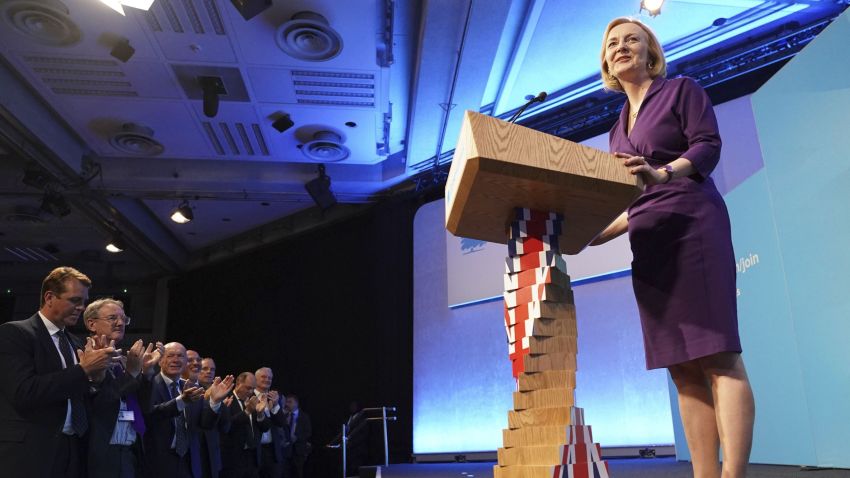The long and, at times, vicious battle for the leadership of Britain’s Conservative party, and with it the United Kingdom itself, came to a close Monday, ending with a result that most observers had predicted weeks ago. Two of outgoing Prime Minister Boris Johnson’s Cabinet ministers had been vying for the job, but it was Liz Truss, the former foreign secretary, who convincingly beat Rishi Sunak, former chancellor of the exchequer, to become the country’s fourth prime minister in six years.
The Tory leadership campaign was simultaneously both peculiar and utterly pedestrian. Sunak, who just a year ago seemed certain to replace Johnson as prime minister until a scandal concerning his wife’s taxes became public, topped every round of voting except for the one that really mattered, finishing first among Tory members of parliament in all five elimination ballots that set up the final vote among party members. Truss, on the other hand, trailed Penny Mordaunt—the surprise dark horse candidate of the leadership contest—until the penultimate round among MPs, yet her progression to the final round set up the most predictable finale possible. Unsurprisingly, when party members were finally allowed to choose their preferred leader, 57 percent of the 140,000 Conservative Party members that voted—a smaller margin than any previous Conservative Party leader has enjoyed—selected the most right-wing option available, thereby crowning Truss as prime minister.
Although she emerged victorious, Truss will start her premiership from a weaker position than Sunak would have, had he managed to win over the Conservative Party grassroots membership. In addition to having been the choice of more MPs than Truss, according to opinion polling, Sunak is significantly more popular than the new prime minister on a national level, making him the logical choice to lead the Conservatives into another election. In the end, that didn’t matter to party members, who generally stand further to the right than most Tory MPs and voters and opted for the more divisive option. Yet, at the same time, Truss is less popular with her own party’s base than her scandal-ridden predecessor, Boris Johnson.

